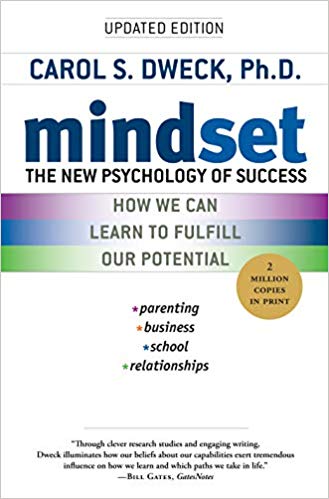

This article is an excerpt from the Shortform summary of "Mindset" by Carol Dweck. Shortform has the world's best summaries of books you should be reading.
Like this article? Sign up for a free trial here .
What is a “growth mindset” culture? How do you cultivate it in your organization? Why should you?
We’ll cover the basic elements of a growth mindset culture and discuss why it’s so important to an organization’s success.
What Is a Growth Mindset?
In order to understand a growth mindset culture, we need to understand the difference between growth mindsets and fixed mindsets.
Growth mindset: When you have a growth mindset, you believe the abilities you’re born with are a starting point. You can get smarter and grow with hard work, persistence, and the right learning strategies. You have a passion for learning, welcome mistakes as opportunities to learn, and seek challenges so you can stretch.
Fixed mindset: When you have a fixed mindset, you believe your abilities are unchangeable. You were born with certain traits and a certain amount of intelligence and that’s that. Many people are trained in this mindset from an early age — for instance, by a teacher who believes your IQ determines everything: You’re either smart or you’re dumb; you can learn or you can’t. When you view your abilities as unchangeable, you feel you must constantly prove yourself. If people get a set amount of intelligence, you want to prove you have a lot, although you secretly worry you were shortchanged.
A growth mindset culture is simply one that actively encourages a growth mindset and actively discourages a fixed mindset in its employees.
What Are the Benefits of a Growth Mindset Culture?
A company’s mindset has a strong effect on employee efficacy and morale. Researchers found that employees in growth mindset cultures:
- Had a greater sense of trust and empowerment.
- Were more committed, loyal, and willing to go the extra mile for the company. In contrast, employees in fixed-minded cultures had a greater interest in leaving.
- Believed the company supported innovation and risk-taking.
- Had supervisors with a positive view of employees as collaborative, committed to improvement, and having management potential.
Grow Your Mindset: Tips for Creating a Growth Mindset Culture
- Whether your workplace has a fixed or growth mindset culture, you can contribute positively. Think about how you can be less defensive and apply feedback. Look for ways to learn.
- Think about how you interact with others. This is key to creating a growth mindset culture. As a boss, are you focused on being superior or developing your employees? How do you react when employees outshine or challenge you? Look for ways to develop yourself and your employees.
- Is your company culture susceptible to groupthink and therefore prone to bad decisions? If so, it’s not a growth mindset culture. What are some ways to promote contrary or alternative viewpoints — for instance, appointing someone to play devil’s advocate?
Effective Training
Effective training can be part of your approach to developing a growth mindset culture, but the usual professional development doesn’t cut it. Companies spend hundreds of thousands of dollars to teach managers how to coach and motivate employees, but it has little impact. The reason may be that many managers don’t believe people can change. Studies show that they look for talent first and foremost, trust their first impressions, and make little effort to develop employees. Many don’t notice when employees do improve.
In contrast, growth-oriented managers in a growth mindset culture view talent as a starting point to build on. They believe in developing themselves and their employees and notice improvement. Managers can be taught this mindset. Without a belief in development, training in feedback and boosting performance accomplishes little.
Managing the Praised Generation
When children who are praised for their talent and intelligence grow up and join the workforce, they can be challenging employees. They demand constant affirmation and can’t tolerate mistakes or critical feedback. This can damage a growth mindset culture.
Some companies have responded by giving monthly or quarterly bonuses instead of yearly bonuses, and by providing an array of perks and morale-boosting events to make employees feel valued.
A better approach would be to maintain a growth mindset culture emphasizing that it’s everyone’s responsibility to learn and develop personally and to help grow the company. Managers also must teach the growth mindset to employees — for instance, by giving rewards for taking initiative rather than having the smartest idea, for overcoming an obstacle or setback, or for applying criticism and improving.
A key factor for success and developing a growth mindset culture is a leader who has a growth mindset: Growth-minded leaders share the qualities of:
- Being humble
- Asking questions
- Confronting failures while confident of success
- Downplaying hierarchy
- Constantly trying to improve
- Surrounding themselves with competent people
- Sharing the credit
- Rejecting power games
- Thinking of the company’s future
Whether you’re the boss or an employee, you can develop these qualities in yourself to help create a growth mindset culture in your work community.
———End of Preview———

Like what you just read? Read the rest of the world's best summary of "Mindset" at Shortform . Learn the book's critical concepts in 20 minutes or less .
Here's what you'll find in our full Mindset summary :
- The difference between a growth and a fixed mindset
- How a fixed mindset keeps you back throughout your life: education, relationships, and career
- The 7 key ways to build a growth mindset for yourself






